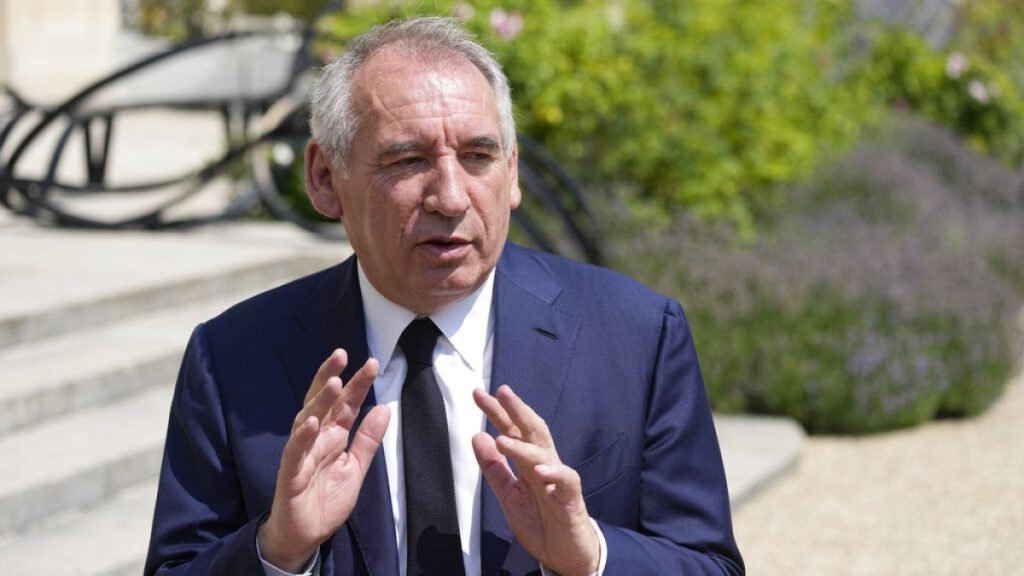Paragraph 1: Macron’s Strategic Choice Amidst Political Gridlock
French President Emmanuel Macron, facing a deeply divided parliament and the recent ouster of his previous government via a historic no-confidence vote, has appointed seasoned centrist politician François Bayrou as the new prime minister. This strategic maneuver aims to bridge the political chasm and foster collaboration among the fragmented factions within the National Assembly. Bayrou, a 73-year-old veteran of French politics, brings decades of experience and a reputation for centrism, making him a potentially unifying figure in the current turbulent political landscape. Macron’s decision underscores the urgency of the situation and the need for a leader capable of navigating the complex parliamentary dynamics.
Paragraph 2: Bayrou’s Political Journey and Alliance with Macron
Bayrou’s political trajectory is marked by both longevity and adaptability. The founder and leader of the Democratic Movement (MoDem), he has served as education minister and has been a presidential candidate three times. His strongest showing was in 2007, where he secured nearly 19% of the vote. In 2017, he demonstrated political pragmatism by forgoing his own presidential ambitions to endorse Macron, a pivotal move that contributed to Macron’s victory. Although briefly appointed justice minister, Bayrou resigned amidst an investigation into MoDem’s finances, a matter from which he was ultimately cleared earlier this year. This checkered past, however, does not negate the political capital he brings to the table, particularly his established relationship with Macron.
Paragraph 3: The Challenge of a Fragmented Parliament and Budgetary Impasse
The French parliament, fractured into three main blocs, presents a significant challenge to Bayrou’s premiership. The left-wing alliance, although holding the most seats, lacks a majority. Macron’s centrist alliance and the far-right National Rally (RN) constitute the other two power centers, creating a delicate balance of power. The immediate priority for Bayrou is to forge a working relationship with parliament to pass a budget agreement for the coming year, a task that proved insurmountable for the previous government. The budget represents a key point of contention among the parties, with each bloc holding distinct priorities and "red lines."
Paragraph 4: Navigating Opposing Forces and Seeking Common Ground
Bayrou’s success hinges on his ability to bridge the ideological divides and build consensus. The RN, led by Jordan Bardella, has expressed willingness to engage but insists on its demands being considered, placing the onus on Bayrou to demonstrate inclusivity. Meanwhile, the left-wing parties harbor skepticism, viewing Bayrou as too closely aligned with Macron and a continuation of policies they oppose. Figures like Manon Aubry and Mathilde Panot have voiced their concerns, arguing that Bayrou’s appointment disregards the results of the summer elections, where the left secured the most votes among the blocs. This resistance from the left presents a formidable obstacle for Bayrou as he attempts to garner support for his government and legislative agenda.
Paragraph 5: The Tightrope Walk of Centrist Governance
Bayrou’s challenge is to balance the competing interests of the various parliamentary factions while advancing Macron’s agenda. He must find common ground on critical issues like the budget without alienating any of the major blocs. His experience as a centrist politician will be crucial in this delicate negotiation process. He needs to project an image of independence from Macron while simultaneously implementing the president’s vision. This tightrope walk demands exceptional political dexterity and the ability to build trust with parties that hold fundamentally different ideologies.
Paragraph 6: The Stakes and the Potential for Instability
The political stakes are high for France. The country faces economic challenges and social divisions that require a stable government and decisive action. Bayrou’s ability to unite the parliament and navigate the intricate political landscape will determine whether France can overcome its current impasse and move forward. Failure to secure parliamentary support and pass the budget could lead to further instability, potentially triggering another no-confidence vote and deepening the political crisis. The coming weeks and months will be a critical test for Bayrou’s leadership and his capacity to steer France towards a more cohesive and functional political future.














